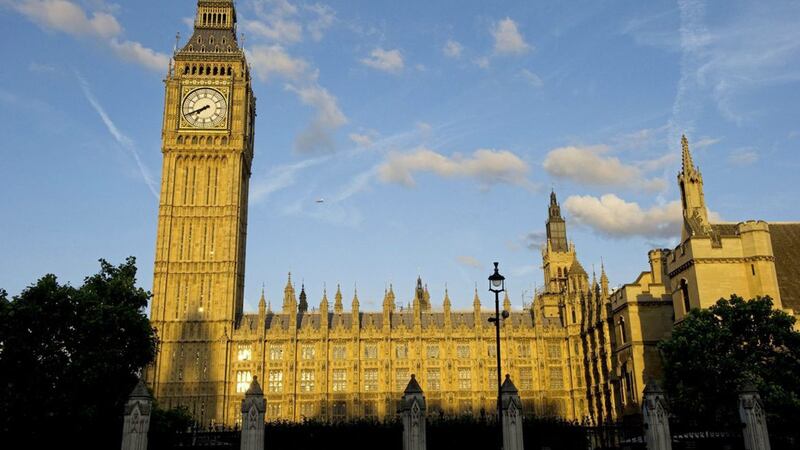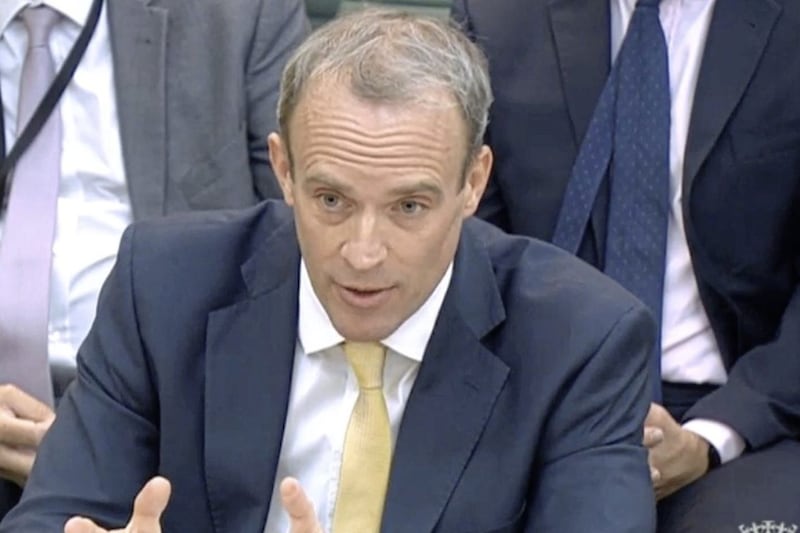THE BRITISH government has said it will not legislate for a Bill of Rights until there is "consensus" on the issue at Stormont.
An assembly ad hoc committee this week published its report on a Bill of Rights but was unable to agree a way forward, with the DUP being blamed for the impasse.
The committee was established two years ago under New Decade, New Approach (NDNA) but has been plagued by controversy over a failure to appoint a five-member expert panel to advise MLAs.
It has been widely claimed that the DUP resisted Professor Colin Harvey's appointment to the panel. The Queen's University human rights specialist was interviewed in June 2020 for one of the positions but has heard nothing from the Executive Office for more than18 months.
The DUP consistently declines to comment on the matter.
The Bill of Rights process is based on a commitment in the Good Friday Agreement.
The NI Human Rights Commission presented its report on the proposed legislation to the British government in 2008, however, successive administrations have failed to implement the commitment, despite the 1998 accord specifying that it be enacted at Westminster.
SDLP leader Colum Eastwood said a Bill of Rights was a "key part of the Good Friday Agreement" and would also be a "cornerstone of any new Ireland we create".
But the Foyle MP said he wasn't optimistic that Westminster would pass the legislation any time soon.
"The Tory government don’t want social and economic rights enshrined in law," he told The Irish News.
"They are are doing all they can to strip basic human rights from the statute book – that was a big part of their campaign to leave the EU."
Sinn Féin MLA Emma Sheerin, who chaired the ad hoc committee, said the need for a Bill of Rights was "applicable now as it was when it was promised nearly 24 years ago in the Good Friday Agreement".
"Delay and obstruction assisted by the failure of successive British governments has led to the denial of a Bill of Rights for all citizens whether they be unionist, nationalist or other," she said.
Alliance MLA Paula Bradshaw said her party was committed to the delivery of a Bill of Rights.
"The UK government has an obligation under the Good Friday Agreement to take forward a Bill of Rights for Northern Ireland and should not hesitate to seek its progress in the absence of an absolute consensus here," she said.
"It was borne out in the assembly chamber, that four of the five main parties on the ad hoc committee were supportive of some form of a bill of rights and at one point, the committee reached a consensus on how the legislation should be enacted at Westminster. However, the DUP soon rowed back from this."
Professor Harvey said there was political and public support for delivery of a Bill of Rights and that the Good Friday Agreement was clear that it needed to be enacted at Westminster.
"So, attention now turns there, in what many will hope will be the final phase," he said.
"Both governments must work together to ensure that people here are accorded the human rights they expect and deserve. This region still needs a strong and inclusive Bill of Rights."
However, a British government statement suggested the legislation was unlikely to be tabled in the short-to-medium term.
“The government is wholeheartedly committed to upholding the Belfast (Good Friday) Agreement in all its parts, which includes provision for a Bill of Rights in Northern Ireland," the statement said.
“However, consensus, including between the Northern Ireland parties, is needed before any agreement can be reached on what a Bill of Rights should include. This approach was always envisaged in the Belfast (Good Friday) Agreement."








